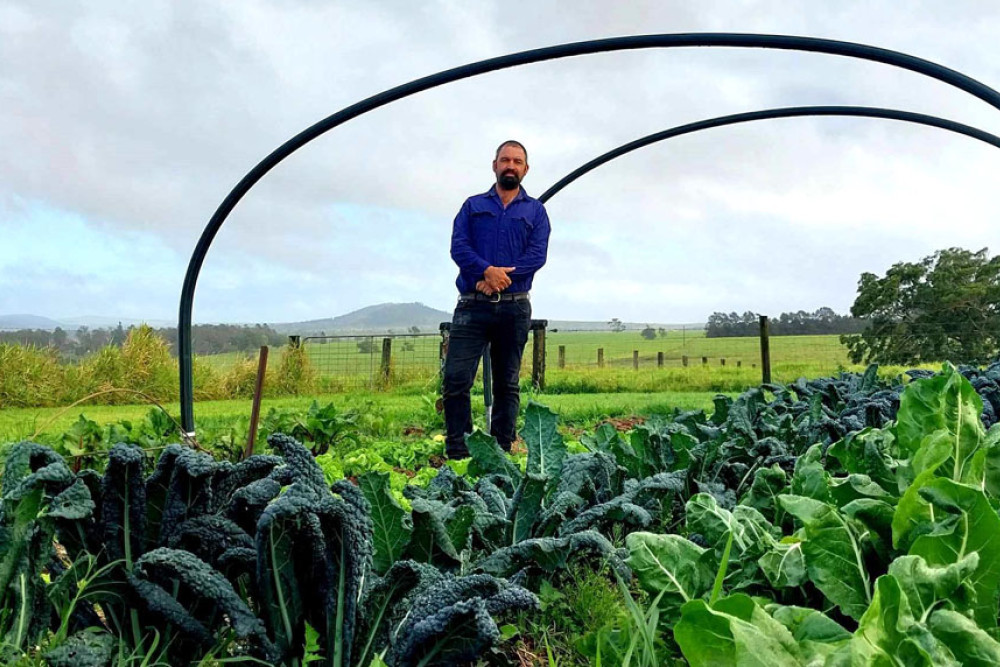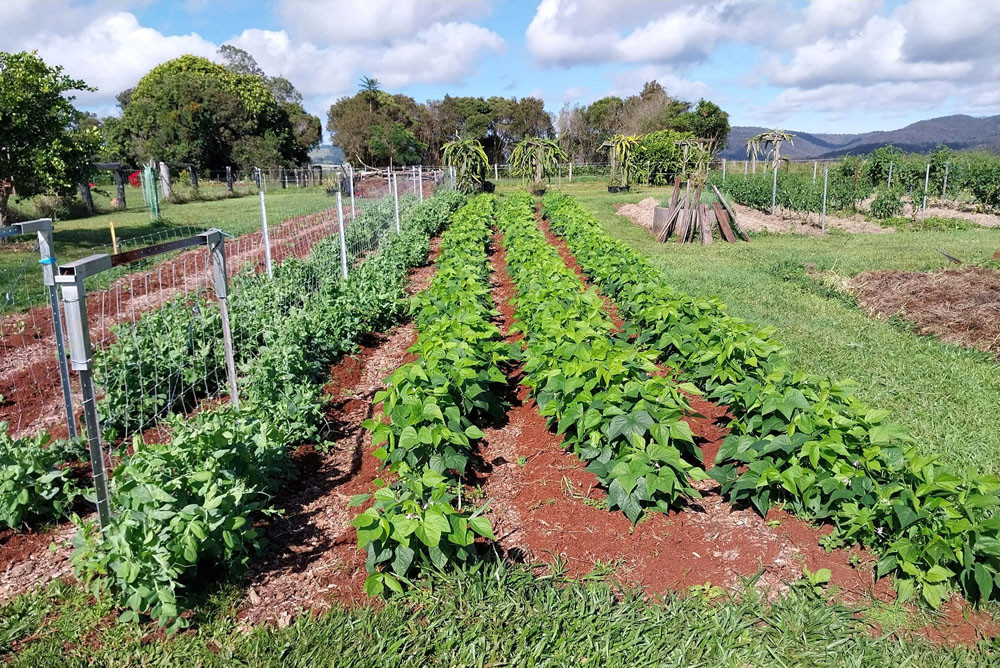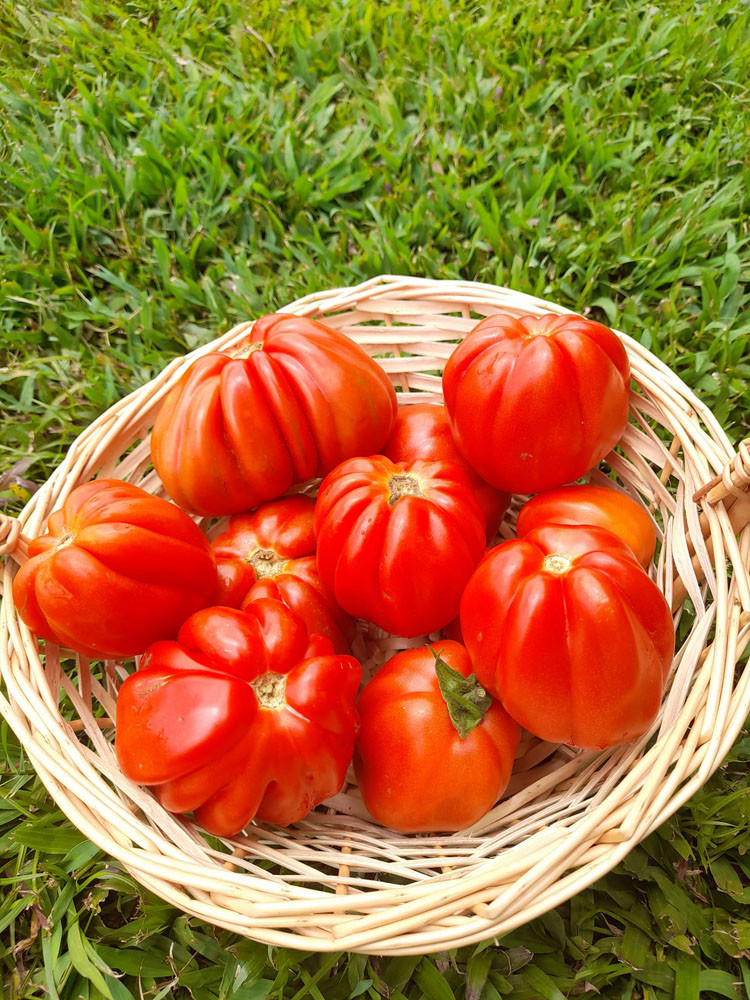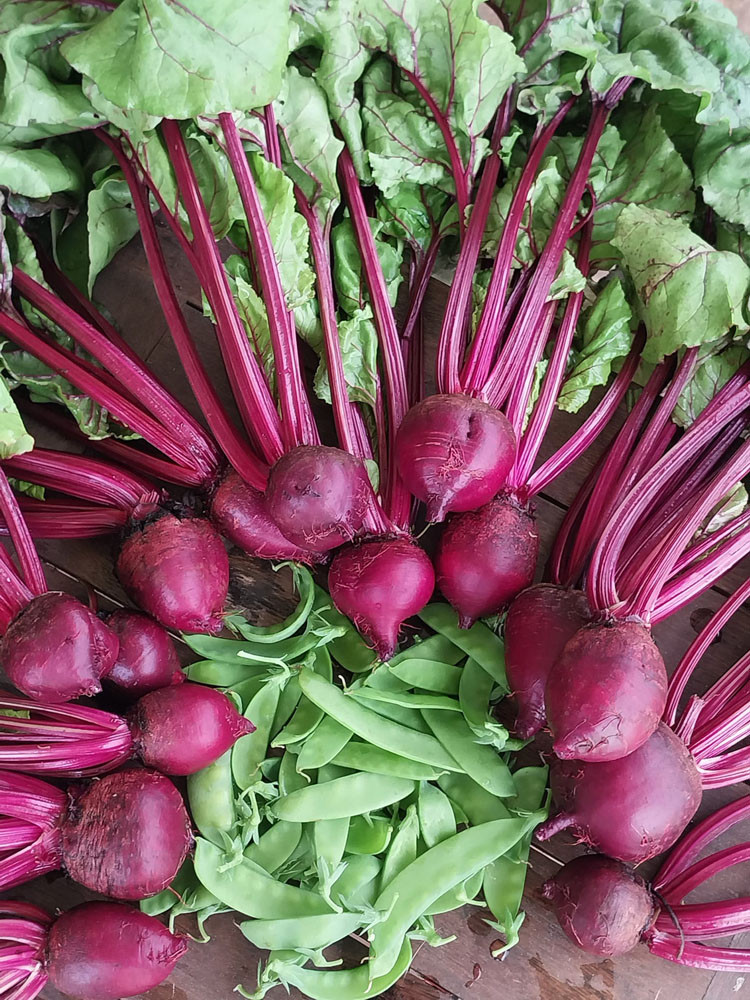On The Land
1 October, 2023
Highest quality organic vegetable grower soars to new heights
Starting his working life as a rigger on sailing vessels when just 16 years old, Matt Daaboul worked and travelled all over the world where he developed a passion for quality food and how it was grown in different countries.

“I met a lot of people with a passion for growing food organically,” Matt said.
“A few years later my wife Nicola and I rented a house and decided that we’d have a go at growing our own food.
“I think it was a natural progression from growing vegetables in the backyard.
“You only want to grow the best quality food for your family.
“When I was learning how to scale up to a larger growing area, I read a book that stated that plants didn’t care where their nitrogen came from.
“So, I figured it would be cheaper to make my own fertilisers with the manures and plant matter on our farm rather than buying it from a store.
“And that sort of opened me up to organic practices.
“At our scale, there is no reliance on off-farm inputs.”
Being Matt’s favourite animal, the name Albatross Farm holds a special significance.
The albatross has one of the largest wingspans of any bird.
Due to this fact they cannot take off in calm weather and need a headwind to create lift.
“I use that as a metaphor for our farm,” Matt said.
“It’s not always going to be smooth sailing.
“It’ll take hard work and determination to succeed.”
Albatross Farm was started with the aim of providing more choice in what people eat whilst minimising the environmental footprint on the planet.
“We believe in growing food for our local community using the best organic practices,” Matt said.
“Growing at a smaller scale means that every tomato, every snow pea has to taste perfect.
“We pride ourselves on the quality of produce we grow.”
Albatross Farm comprises of a small 1.5 hectare block with a production area equating to around 4000 square metres.
Matt selected Upper Barron to establish his organic vegetable and fruit growing operation for specific reasons.
“My wife grew up on the Tablelands, so when we were looking to buy, she had a rough idea of areas to live in,” he said.
“Aspect, soil type and water were big factors in our choice.
“I didn’t want to have too little rainfall that meant I would have to invest in irrigation, but having too much would also not be ideal for vegetable growing.
“Where we are in Upper Barron gives us a bit of a compromise.
“We get a fair bit of rain, but being on top of a hill with a slight slope to the north allows for good drainage and plenty of sun.
“The beautiful red soil is a great starting point for building a healthy, living soil.”
Seasonal vegetables and fruit are grown at Albatross Farm with growing and harvesting commencing from May through to December.
“Starting just after the wet season starts to ease off, we grow beans, snow peas, beetroot and leafy greens,” Matt said.
“Then, as the weather dries out and heats up we grow tomatoes, cucumbers, eggplants and zucchinis.
“We save seed from our best producers to use next season.
“So, I tend to only grow one variety to avoid cross pollination.
“But each year we’ve been trialling different varieties to see what works best here.
“Then in the wet season our field goes into cover crop.
“Each season we’ve looked at where we can add different crops to fill gaps and extend our season.
“Last year we planted 100 dragon fruit plants that should fill the March to April period.
“We’re also working on a food licence that will help us value-add to our produce.
“We make a lot of sauces, dips, jams and preserves that we can sell during the wetter months of the year.”
With pests and diseases being inevitable, growing produce without synthetic chemicals to control pests and diseases can be challenging.
“There’s no magic bullet when growing organically,” Matt said.
“You need to implement a whole range of control measures.
“We use a lot of netting to act as a physical barrier against most insects.
“Crop rotation is important to control the buildup of fungal and bacterial diseases.
“Growing a wide variety of crops also encourages beneficial insects to help keep pest pressure down.
“Avoiding compaction and keeping the soil aerobic also helps.
“Growing on a smaller scale also allows us to identify any problems quickly and take action before it gets out of hand.”
Tablelanders, as well as people as far away as Cairns, are benefiting from having access to Albatross Farm’s superb organic produce.
“Our main buyer is the Atherton Food Co-Op,” Matt said.
“They have been great in supporting our little farm and helping us get started.
“We also sell to a few stallholders at Rusty’s Market in Cairns.
“And of course, we sell direct to the public through our Facebook page.”
For further information, email albatrossfarm@outlook.com or on Facebook at Albatross Farm FNQ





